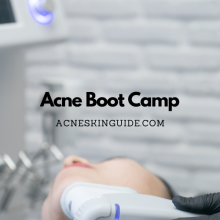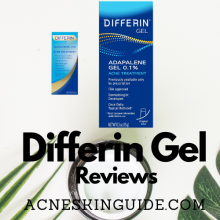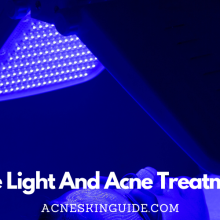Natural Remedies for Acne | ِAcne Skin Guide
Acne is a prevalent skin condition, and many individuals turn to natural and home remedies as a gentle alternative to conventional treatments. This article explores various natural remedies for acne, such as tea tree oil, honey, apple cider vinegar, aloe vera, green tea, baking soda, lemon juice, turmeric, and oatmeal. It discusses their benefits, how to use them, and specific remedies for different types of acne like cystic, hormonal, and body acne.
The article also covers DIY recipes like face masks, overnight treatments, and natural toners. While generally safe, it highlights potential downsides like allergic reactions, ineffectiveness for severe cases, irritation, and lack of regulation. The article emphasizes conducting patch tests, making dietary and lifestyle changes, seeking professional help when needed, and adopting a holistic approach combining natural remedies with a healthy routine for optimal results in managing acne breakouts.
#1 Recommended Acne Treatment | #2 Recommended Acne Treatment |
 |  |

Acne Natural Home Remedies That Work
Acne is a common skin condition that affects millions of people worldwide. While there are many conventional treatments available, many individuals prefer to explore natural and home remedies for acne due to their potential for fewer side effects and ease of accessibility. These remedies often utilize readily available ingredients and can be a cost-effective and gentle alternative for managing acne breakouts. In this article, we’ll explore various natural remedies for acne, their benefits, and potential downsides.
Tea Tree Oil: A Potent Natural Antibacterial
Tea tree oil is a natural essential oil derived from the Melaleuca alternifolia plant, known for its potent antimicrobial, anti-inflammatory, and antiseptic properties. Studies have shown that tea tree oil can be effective in reducing acne lesions and preventing the growth of acne-causing bacteria.
To use tea tree oil for acne, it can be diluted with a carrier oil like jojoba or coconut oil and applied directly to blemishes or used as a spot treatment. It can also be added to face masks, toners, or moisturizers for all-over application. However, it’s important to conduct a patch test beforehand to check for any potential skin irritation or allergic reactions. Tea tree oil should be used in moderation and avoided on broken or irritated skin.
Honey: A Sweet Solution for Acne-Prone Skin
Honey has long been touted for its natural antibacterial, anti-inflammatory, and humectant properties, making it an excellent remedy for acne-prone skin. Its ability to absorb impurities and moisturize the skin can help prevent and treat acne breakouts.
Honey can be used in various ways for acne, including as a face mask, spot treatment, or toner. To make a honey face mask, simply mix raw honey with other natural ingredients like lemon juice, yogurt, or turmeric. Different types of honey can be used for acne treatment, such as Manuka honey, known for its potent antibacterial properties, raw honey, which retains its natural enzymes and nutrients, or organic honey, which is free from pesticides and additives.
Apple Cider Vinegar: A Natural Astringent and Exfoliant
Apple cider vinegar is a natural astringent and exfoliant that can help balance the skin’s pH levels, unclog pores, and reduce inflammation associated with acne. Its acidic nature helps remove excess oil and dead skin cells, which can contribute to acne breakouts.
To use apple cider vinegar for acne, it can be diluted with water and applied as a toner or spot treatment. It can also be added to face masks or used as a rinse after shampooing to help combat back and body acne. However, it’s important to use apple cider vinegar in moderation and dilute it properly, as its high acidity can potentially irritate or dry out the skin if used excessively.
Other Home Remedies for Acne
In addition to tea tree oil, honey, and apple cider vinegar, there are several other natural ingredients that can be effective in treating acne:
- Aloe vera gel has soothing and healing properties that can help reduce inflammation and redness associated with acne.
- Green tea is rich in antioxidants and has anti-inflammatory properties that can help combat acne.
- Baking soda is a gentle exfoliant that can help unclog pores and remove excess oil and dead skin cells.
- Lemon juice contains citric acid, which can help exfoliate the skin and dry out pimples, but should be used with caution as it can cause photosensitivity and irritation if not diluted properly.
- Turmeric has anti-inflammatory and antimicrobial properties that can help reduce the appearance of acne and prevent future breakouts.
- Oatmeal is a gentle, natural exfoliant that can help remove excess oil and dead skin cells from the skin’s surface.
Home Remedies for Specific Types of Acne
Certain home remedies may be more effective for specific types of acne. For cystic acne, warm compresses and clay masks can help draw out impurities and reduce inflammation. Hormonal acne, often associated with fluctuations in hormones during menstrual cycles or pregnancy, may benefit from remedies like spearmint tea, which can help regulate hormone levels, and ingredients like green tea and zinc, which have anti-androgen properties.
Back and body acne can be treated with remedies like apple cider vinegar rinses, baking soda scrubs, or clay masks, which can help unclog pores and remove excess oil and dead skin cells. For acne scars, natural ingredients like honey, aloe vera, and rosehip seed oil can help promote healing and reduce the appearance of scarring due to their anti-inflammatory and skin-regenerating properties.
DIY Acne Remedies and Recipes
Homemade face masks are an excellent way to combine various natural ingredients for a targeted acne treatment. Examples include clay masks for deep cleansing, yogurt masks for their lactic acid and probiotics, and fruit-based masks like banana or strawberry for their enzymes and antioxidants.
Overnight acne remedies can be particularly effective, as they allow the ingredients to work on the skin for an extended period. This could include spot treatments using tea tree oil, honey, or bentonite clay, or full-face masks like an oatmeal or turmeric mask.
Natural toners and serums can be made at home using ingredients like witch hazel, which has astringent properties, or rosehip seed oil, which is rich in vitamin C and can help reduce the appearance of acne scars.
Tips and Precautions
While natural remedies are generally safe, it’s crucial to conduct a patch test before using any new remedy or DIY recipe to check for potential skin irritation or allergic reactions. Additionally, certain dietary and lifestyle changes can also support clear, healthy skin, such as avoiding dairy and high-glycemic foods, staying hydrated, and managing stress levels.
If acne is severe, persistent, or not responding to home remedies, it’s advisable to seek professional help from a dermatologist, as some cases may require medical treatment or prescription medications.
When using home remedies for acne, it’s important to maintain a gentle and consistent skincare routine, avoiding harsh scrubbing or over-exfoliating, which can further irritate the skin and worsen acne. Some natural ingredients like lemon juice or essential oils may cause photosensitivity or interact with certain medications, so it’s essential to be aware of potential side effects and take necessary precautions.
Potential Downsides of Natural Remedies for Acne
While natural remedies are generally considered safe, there are a few potential downsides to be aware of:
- Allergic reactions: Some natural ingredients, such as tea tree oil or certain essential oils, can cause allergic reactions in some individuals. It’s essential to conduct a patch test before using any new remedy.
- Ineffectiveness: Natural remedies may not be as effective as conventional acne treatments, especially for severe or persistent cases of acne. They may also take longer to show results.
- Irritation: Some natural ingredients, like lemon juice or apple cider vinegar, can be highly acidic and may cause skin irritation, especially if not diluted properly or used excessively.
- Lack of regulation: Natural remedies and DIY recipes are not regulated by the FDA, which means that their quality, purity, and potency can vary widely.
Conclusion
Natural and home remedies for acne can be an effective and gentle alternative to conventional treatments. However, it’s important to be patient and consistent in their application, as results may not be immediate and could take several weeks or months to become noticeable. Ultimately, adopting a holistic approach that combines natural remedies, a healthy diet, stress management, and a gentle skincare routine can be the most effective way to achieve clear, healthy skin and manage acne breakouts in the long term.
#1 Recommended Acne Treatment | #2 Recommended Acne Treatment |
 |  |
Summary and FAQs
Can coconut oil be used as a natural remedy for acne?
The use of coconut oil as a natural remedy for acne is a bit controversial. Here’s an overview of the potential benefits and drawbacks of using coconut oil for acne:
Potential Benefits:
- Antimicrobial properties: Coconut oil contains lauric acid, which has antimicrobial properties that may help kill acne-causing bacteria on the skin.
- Moisturizing: Coconut oil is a natural moisturizer that can help hydrate the skin without clogging pores.
- Anti-inflammatory: Some studies suggest that the fatty acids in coconut oil may have anti-inflammatory effects, which could help reduce inflammation associated with acne.
Potential Drawbacks:
- Comedogenicity: Coconut oil is considered moderately comedogenic, which means it has the potential to clog pores and exacerbate acne for some people, especially those with oily or acne-prone skin.
- Individual tolerance: Not everyone’s skin reacts the same way to coconut oil. Some people may find it beneficial, while others may experience more breakouts or clogged pores.
- Lack of scientific evidence: While some anecdotal evidence suggests that coconut oil may help with acne, there is limited scientific research specifically evaluating its efficacy as an acne treatment.
If you decide to try coconut oil for acne, it’s recommended to use it in moderation and perform a patch test first to check for any adverse reactions. It’s also important to keep in mind that coconut oil is not a cure-all and may not be effective for everyone, especially those with severe or persistent acne.
As with any natural remedy, it’s always a good idea to consult with a dermatologist or healthcare professional before incorporating coconut oil or any new treatment into your skincare routine, especially if you have a pre-existing skin condition.
Are there any specific dietary changes that can help with acne when using natural remedies?
Yes, there are certain dietary changes that can potentially help with acne when using natural remedies:
- Limit dairy products: Studies have shown a link between dairy consumption and acne severity. Dairy products can stimulate the production of hormones like insulin and IGF-1, which can increase sebum production and inflammation, contributing to acne breakouts.
- Reduce intake of high-glycemic foods: Foods with a high glycemic index, such as white bread, pasta, sugary snacks, and sweetened beverages, can cause spikes in blood sugar levels, leading to increased insulin production and inflammation, both of which can worsen acne.
- Increase intake of anti-inflammatory foods: Incorporating more anti-inflammatory foods into your diet may help reduce inflammation and support clearer skin. Examples include fatty fish like salmon and mackerel (rich in omega-3 fatty acids), leafy green vegetables, berries, nuts, and seeds.
- Stay hydrated: Drinking plenty of water can help flush out toxins and keep the skin hydrated, which may improve the efficacy of natural remedies for acne.
- Consider probiotic-rich foods: Some research suggests that probiotics may help regulate gut bacteria, which can positively impact skin health and potentially reduce acne breakouts.
- Limit processed and fried foods: These foods are often high in inflammatory compounds and unhealthy fats, which can exacerbate acne and potentially interfere with the effectiveness of natural remedies.
It’s important to note that dietary changes may take time to show results and should be combined with other natural remedies and a consistent skincare routine. Additionally, individual responses to certain foods can vary, so it may be helpful to keep a food diary to identify potential triggers for your acne.
Can essential oils be used as natural remedies for acne, and if so, which ones are effective?
Yes, certain essential oils can be effective natural remedies for acne due to their antimicrobial, anti-inflammatory, and antioxidant properties. However, it’s crucial to use essential oils with caution and dilute them properly to avoid skin irritation or adverse reactions. Here are some essential oils that may help combat acne:
- Tea tree oil: As mentioned in the article, tea tree oil is one of the most well-known and researched essential oils for acne. Its antimicrobial and anti-inflammatory properties can help kill acne-causing bacteria and reduce inflammation.
- Rosemary oil: Rosemary oil has antimicrobial, anti-inflammatory, and astringent properties that can help fight acne-causing bacteria, reduce redness and inflammation, and help tighten pores.
- Lavender oil: Lavender oil is known for its soothing and calming properties, but it also has antimicrobial and anti-inflammatory effects that may help treat acne and promote healing.
- Clary sage oil: Clary sage oil has been found to have antibacterial and anti-inflammatory effects, making it potentially beneficial for treating acne and reducing the appearance of blemishes.
- Lemongrass oil: Lemongrass oil has antimicrobial and astringent properties that can help kill acne-causing bacteria, regulate sebum production, and tighten pores.
- Thyme oil: Thyme oil has potent antimicrobial and anti-inflammatory properties that may help fight acne-causing bacteria and reduce inflammation associated with acne lesions.
When using essential oils for acne, it’s crucial to dilute them with a carrier oil, such as jojoba, coconut, or almond oil, to avoid irritation. It’s also recommended to do a patch test before applying essential oils to the face or other large areas of the body to check for any potential allergic reactions or sensitivities.
It’s important to note that while essential oils can be effective natural remedies for acne, they may not work for everyone, and severe or persistent cases of acne may require medical treatment or prescription medications. Always consult with a dermatologist or healthcare professional before incorporating new treatments into your skincare routine, especially if you have a pre-existing skin condition.
Are there any natural remedies specifically targeted towards cystic acne or hormonal acne?
Yes, there are certain natural remedies that may be particularly helpful for treating cystic acne and hormonal acne. Here are some options:
For Cystic Acne:
- Tea Tree Oil: The antimicrobial and anti-inflammatory properties of tea tree oil can help reduce the size and severity of cystic acne lesions. It can be diluted with a carrier oil and applied as a spot treatment.
- Turmeric: Turmeric contains curcumin, a powerful anti-inflammatory compound that may help reduce the inflammation and pain associated with cystic acne. It can be used as a face mask or taken as a supplement.
- Warm Compresses: Applying a warm compress to cystic acne lesions can help bring the inflammation to the surface, promoting drainage and healing.
- Aloe Vera: Aloe vera gel has soothing and healing properties that can help reduce the redness and inflammation of cystic acne. It can be applied directly to the affected areas.
For Hormonal Acne:
- Spearmint Tea: Spearmint tea contains compounds that may help regulate hormones and reduce the production of androgens, which can contribute to hormonal acne. Drinking spearmint tea regularly may help alleviate hormonal acne breakouts.
- Evening Primrose Oil: Evening primrose oil is rich in gamma-linolenic acid (GLA), an omega-6 fatty acid that may help regulate hormone levels and reduce inflammation associated with hormonal acne.
- Green Tea: Green tea contains antioxidants and compounds with anti-androgenic properties, which may help regulate hormone levels and reduce the occurrence of hormonal acne.
- Zinc: Zinc is an essential mineral that plays a role in regulating hormone levels and reducing inflammation. It can be taken as a supplement or found in foods like oysters, beef, and pumpkin seeds.
- Saw Palmetto: Saw palmetto is an herb that may help block the effects of hormones like testosterone, potentially reducing the occurrence of hormonal acne.
It’s important to note that while these natural remedies may be helpful for cystic and hormonal acne, they may not work for everyone, and severe or persistent cases may require medical treatment or prescription medications. Additionally, it’s always advisable to consult with a dermatologist or healthcare professional before incorporating new treatments into your skincare routine, especially if you have a pre-existing condition or are taking any medications.
Can natural remedies for acne be used during pregnancy or breastfeeding?
Using natural remedies for acne during pregnancy or breastfeeding requires some extra caution and consideration. Here are some general guidelines:
During Pregnancy:
- Many essential oils, including tea tree oil, should be avoided or used with extreme caution during pregnancy, as their safety has not been fully established.
- Ingredients like retinoids (vitamin A derivatives) and salicylic acid should be avoided, as they can potentially cause birth defects.
- Honey, oatmeal, and certain plant-based ingredients like aloe vera and green tea are generally considered safe for topical use during pregnancy, but it’s best to consult with your healthcare provider first.
- It’s recommended to avoid oral supplements or remedies during pregnancy unless specifically approved by your doctor or midwife.
During Breastfeeding:
- Essential oils should be used with caution, as their safety for breastfeeding mothers and infants has not been thoroughly studied.
- Ingredients like honey, aloe vera, and oatmeal are generally considered safe for topical use while breastfeeding.
- Oral supplements or remedies should be avoided or discussed with a healthcare professional, as some compounds can potentially pass into breast milk.
- Retinoids and salicylic acid should still be avoided during breastfeeding, as they can potentially be absorbed by the infant through the skin.
It’s important to note that every pregnancy and individual situation is different, and what may be safe for one person may not be safe for another. It’s always best to consult with your obstetrician, midwife, or healthcare provider before using any new natural remedies or treatments during pregnancy or while breastfeeding.
Additionally, it’s essential to prioritize professional medical treatment for severe or persistent cases of acne during pregnancy or breastfeeding, as some prescription medications may be deemed necessary and safe for use under medical supervision.
Overall, while some gentle natural remedies may be safe options, it’s crucial to exercise caution and seek professional guidance to avoid potential risks to both the mother and the baby.






